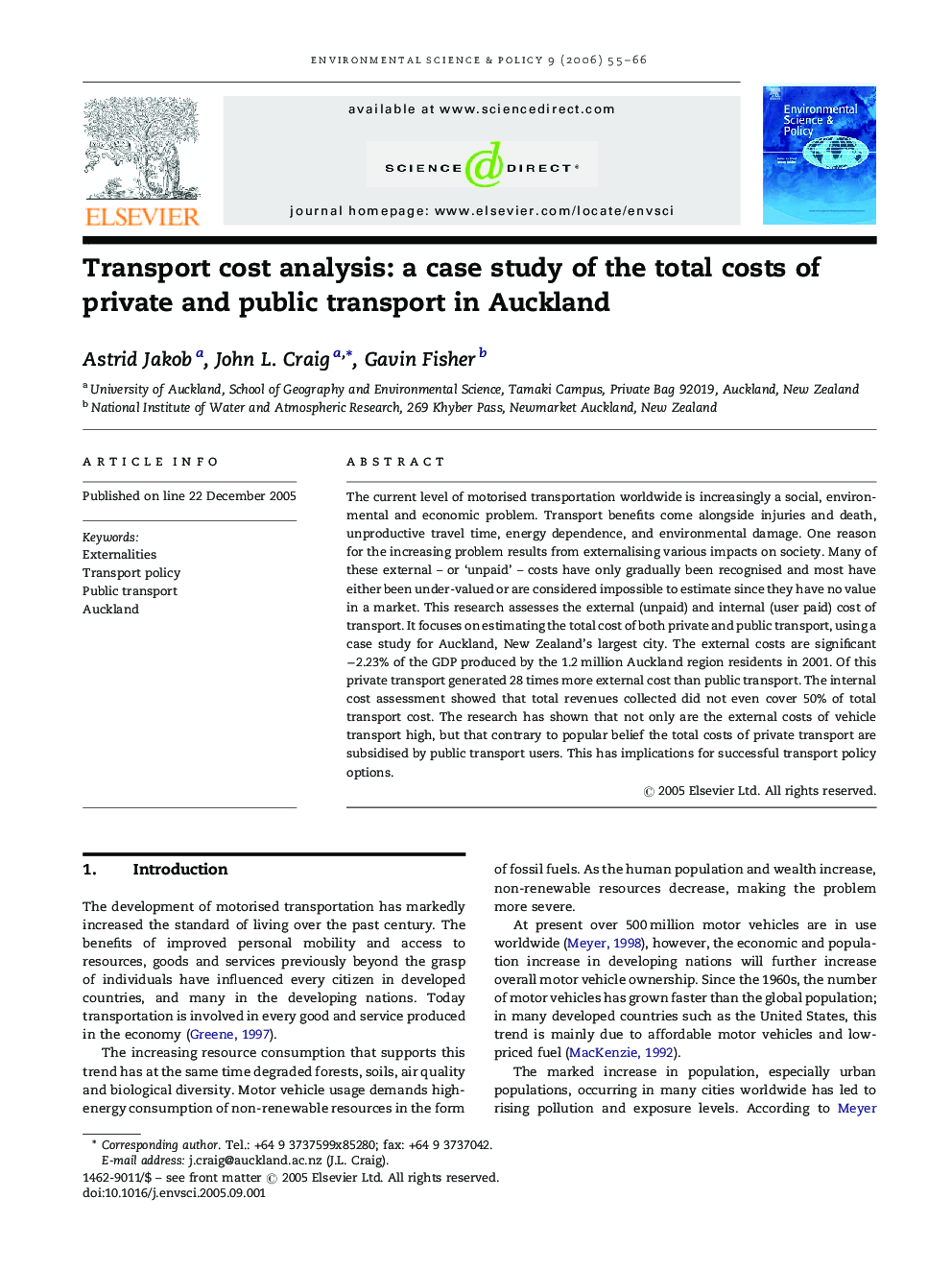| Article ID | Journal | Published Year | Pages | File Type |
|---|---|---|---|---|
| 1054193 | Environmental Science & Policy | 2006 | 12 Pages |
The current level of motorised transportation worldwide is increasingly a social, environmental and economic problem. Transport benefits come alongside injuries and death, unproductive travel time, energy dependence, and environmental damage. One reason for the increasing problem results from externalising various impacts on society. Many of these external – or ‘unpaid’ – costs have only gradually been recognised and most have either been under-valued or are considered impossible to estimate since they have no value in a market. This research assesses the external (unpaid) and internal (user paid) cost of transport. It focuses on estimating the total cost of both private and public transport, using a case study for Auckland, New Zealand's largest city. The external costs are significant −2.23% of the GDP produced by the 1.2 million Auckland region residents in 2001. Of this private transport generated 28 times more external cost than public transport. The internal cost assessment showed that total revenues collected did not even cover 50% of total transport cost. The research has shown that not only are the external costs of vehicle transport high, but that contrary to popular belief the total costs of private transport are subsidised by public transport users. This has implications for successful transport policy options.
